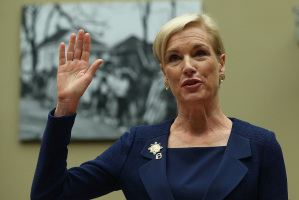Half of Tea Party Rejects Climate Change and Evolution
Approximately half of Tea Party members do not believe in evolution and climate change, according to the newest poll by the Public Religion Research Institute (PRRI). That could be an issue in the 2012 elections, researchers say.
The study found that some 69 percent of all Americans believe there is solid evidence for global warming and nearly 57 percent believe in evolution. However, within the Tea Party, 50 percent of the affiliates reject the idea of global warming and 51 percent do not believe in evolution.
“Americans who identify with the Tea Party and white evangelical Protestants strongly reject evolution,” said Daniel Cox, PRRI Research Director. “In fact, roughly one-third of these groups believe humans and other living things were created within the last 10,000 years.”
The study, which concluded in the midst of presidential campaigns, also suggests that these results might be significant for the 2012 GOP presidential contenders.
“While most Americans say the issues of evolution and climate change do not strongly influence their support of candidates, these issues are symbolically important for two groups that play an outsize role in Republican primary politics: white evangelical Protestants and members of the Tea Party,” said Dr. Robert P. Jones, CEO of Public Religion Research Institute. “The challenge for Republican candidates is to talk about these issues now in a way that will not hurt them later in the general election.”
The issue of openly questioning the evolution theory and the idea of global warming emerged after some Republican presidential contenders tapped them in the public debate.
Rick Perry, the Governor of Texas and presidential contender, is known to have questioned the scientific consensus of both, climate change and evolution.
"I do believe the science is not settled on this," he said during the first Republican debate in September.
Another contender, former Utah Governor Jon Huntsman, warned against expressing such unpopular skepticism publicly as it might scare away the independents, and diminish the chances of the future Republican nominee to beat Barack Obama.
“When you make comments that fly in the face of what 98 out of 100 climate scientists have said, when you call to question evolution, all I'm saying is that in order for the Republican Party to win, we can't run from science. … We can't run from mainstream conservative philosophy," he said during the first GOP debate.
As for the number of people who are less or more likely to support a candidate skeptical of global warming, a Senior Research Fellow at the CATO Institute, Patrick J. Michaels, told The Christian Post that PRRI’s numbers might be a little askew.
Some questions were “poorly worded” and could introduce bias, leading to an inaccurate result, he suggested.
“You can get the answers you want in polls by structuring questions in a specific way,” he told CP.





























